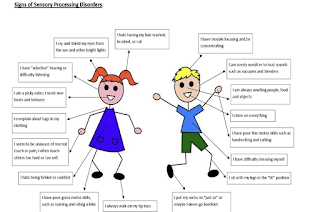THE HARD TRUTH
Being an Autism parent is hard, exhausting work. The stress is overwhelming. Even when you're taking some time for yourself, you can't help but to think about things that need to be done, or feel guilty for doing something for yourself this one time.
Autism parents are faced with continuous challenges ranging from social isolation, financial difficulties, and having a hard time finding resources for their child. Studies show that raising a child with ASD costs on average, $60,000 on average. The lifetime cost amounts to $1.4-$2.4 million! How in the world? In most 2 parent households, one parent ends up quitting their job to be at home with their ASD child. So in addition to spending thousands each year, you have now lost one parents' income. If you come from a single parent household, you either choose to not work and have the state help you, or you continue to work and rely on family to help you with your child. If I had a spouse and was able to only work part-time so I could be with Jaxon more, I would in a heartbeat. But I am a single parent and I choose to work full-time because I am lucky enough to have my mom help with Jaxon. A lot of people aren't that blessed.
ASD parents are on guard 24/7. Studies have shown that ASD parents experience more stress than typical-developing childrens' parents. Even when we are in a safe space with our child, our mind still races about what could go wrong. Being in a constant state of hyper-vigilance is emotionally and physically draining. I have had a friend tell me to relax while we were at a park once. But she didn't know what I keep secret and the struggles that we have. I appreciate her wanting me to relax, but I can't do that.
Missing work for your child's therapy appointments, doctor visits, and when you're trying to receive more services can be very difficult. A lot of people end up staying home with their child because it's easier than worrying about taking off work and possibly losing their job. I am lucky, because my employer understands and is very lenient about my situation.
Studies have shown that ASD parents are highly likely to develop anxiety, depression, extreme fatigue, and even PTSD. Many parents don't get adequate sleep because their child doesn't sleep. Some finally get to bed, but stay awake fretting about what the future holds. Studies have shown that Autism mothers have stress levels comparable to combat veterans. I think that there is no comparison to what our soldiers have been through, but I do understand that our stress level is very high.
Imagine that your child hits, kicks, yells, breaks things, and self-harms constantly. Imagine that your child is having another meltdown and is now banging their head against a wall over and over. Imagine that every time your child ran up to you, you flinched because you're now accustomed to being hit. That was me a few months ago, when Jaxon went through a hitting phase. I felt so ashamed that I would flinch when he would come near me.
There is a lot of worry and stress that comes with being an ASD parent...
- What happens when I die?
- Is the school meeting his needs?
- Will he ever live on his own?
- Will he ever hold down a job?
- Will he ever have normal communication?
- Will he have to live in a group home for the rest of his life?
- How will I afford all of the sensory equipment he needs?
- Will he ever eat a normal diet?
- Is he being bullied?
- Is he struggling inside his own mind, but can't communicate it to me?
- How will I financially support him when he's older?
- Are we doing too much therapy?
- Should we try this new therapy?
- AM I DOING ENOUGH??????????
All of this worry and stress, depression, and fatigue is part of the game. I know that, but that doesn't make it any easier. Self-care is so important for parents raising ASD children. They need to have time to themselves. To clear their head and calm their body. A lot of things can help like, counseling, massages, seeing a movie, having dinner with friends, etc.
I personally have gotten massages, pedicures, had a girls night, but no matter what I'm doing, there's always something in the back of my head that's worrying about something. Whether it's something small about Jaxon or the fact that I feel guilty for leaving Jaxon to have some me time. I have even gone to counseling. Talking about my fears and worries help, but it's still hard dealing with the anxiety.
The fear of going out into public. The fear of people judging Jaxon. The fear that someone is going to ridicule my son for going into the women's bathroom with me. The fear of leaving the house, because I'm anxious for no apparent reason. It is very real and very paralyzing.
I cannot stress enough that if you are having difficulties adjusting to being an ASD parent, or you're going through a rough patch (which I do frequently) please reach out to someone. Please don't keep it inside, and DO NOT feel guilty about taking a couple of hours to yourself. You cannot parent your child if you are not taking care of yourself. I'm good at preaching this stuff, but I myself am still working on it.





